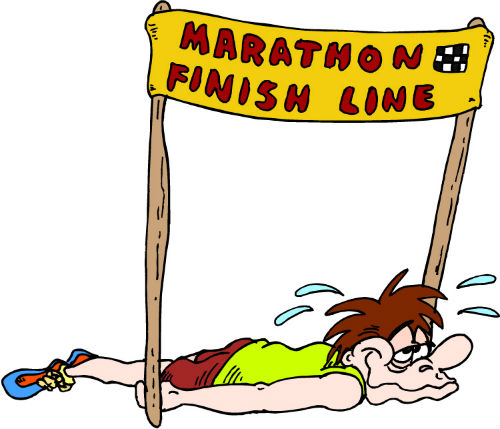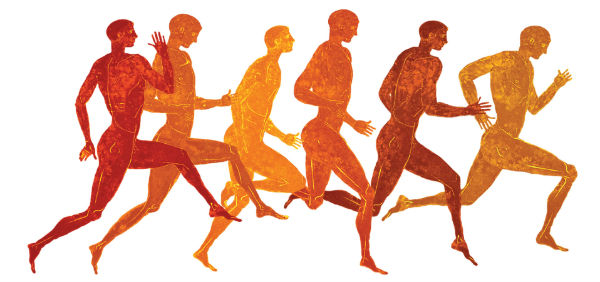The 26.2mile (42.195km) marathon race is getting more popular nowadays, with one being staged somewhere in the world – almost every weekend.
Here are some interesting facts about marathons.
How it originated
When you run a marathon, you are actually following in the footsteps of an ancient Greek messenger, Pheidippides. In the year 490BC, he ran 25 miles from the Greek city of Marathon to Athens to relay the news of Greece’s war victory against the Persians. But straight after announcing the good news, he collapsed and passed away.
So by running a marathon, no matter where it is in the world, you are actually commemorating this brave Greek messenger.
Marathons were not always 26.2 miles long
The first few marathons at Olympic events actually used to be about 25 miles long. But that changed later in the 1908 Olympics – held in London.
The marathon course at this event was originally intended to be 26 miles long. The route would take runners from Windsor Castle to White City Stadium. But an extra 200 yards (182 metres) was added because the Olympic Games organisers wanted to finish the race right in front of the Royal Family’s viewing box at Buckingham Palace.
And since then, the marathon has always been exactly 26.2 miles long.
The Most Consecutive Number of Marathons Ran
The most number of consecutive marathons successfully completed by a single person is 366. Danish marathoner Annette Fredskov holds this record. She completed 366 marathons in 365 days. This was from July 2012 to July 2013. Belgium runner, Stefann Engels, ran 365 marathons in a single year.
This is definitely no easy feat – considering that to a normal runner, completing one marathon is already a huge achievement in itself.
World’s Youngest Marathon Runner
What were you doing at the age of three? That’s because the youngest recorded marathon runner in the world is Budhia Singh, who was first trained to complete marathons when he was only three years old. And when he was four years of age – in 2006 – he had reportedly already run 48 marathons.
But due to his young age, he was subsequently banned from running marathons because of humanitarian reasons.
World’s Oldest Marathon Runner
On the opposite end of the spectrum, the oldest marathon runner in the world completed his last marathon at the age of 101. His name is Fauja Singh and he successfully finished the 2011 Toronto Marathon in eight hours, 11 minutes and five seconds.
So this means that Singapore’s oldest marathoner, Chan Meng Hui, aged 84, still has a good 20 years ahead of him, in terms of his running career!

Almost every weekend, somewhere in the world, hundreds of people cross the finish line of a marathon.
Slowest Marathon Time
How long does it take you to complete a marathon? For top runners, it will take them between two to three hours. Others may take anything from three to seven hours, depending on the weather and other factors.
But for Lloyd Scott, he ran the 2002 London Marathon in five days and eight hours… whilst wearing a 59kg suit meant for deep sea diving. In 2011, Scott broke his own record at the same race, when he completed the London Marathon in 26 days this time… crawling whilst wearing a Brian the Snail costume.
This runner continues to hold the record for being the slowest to complete the London Marathon. So if you can’t get into the record books for being the fastest marathoner, why not aim for the opposite… and get into the records through being the slowest? Now here’s some food for thought!
Taking gels and supplements during a marathon
Why do people invariably take gels and supplements when they run the marathon or a long race? That’s because a person stores 2,000 calories of glycogen and this is only enough to bring you through about 30 kilometres of running.
So a marathon being 42.195km long, needs additional fuel for the final 12km. To give some figures, a 60kg person running at a speed of 6.3 minutes per km burns about 2,777 calories during a marathon. And the body simply can’t store that much energy. So that’s why gels and supplements come in handy.



Leave a Comment